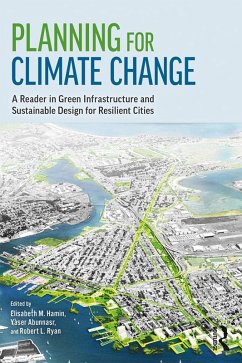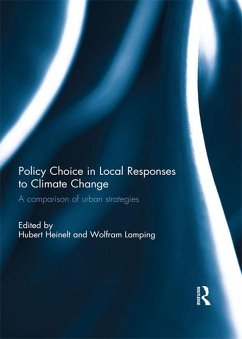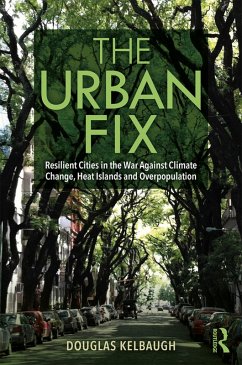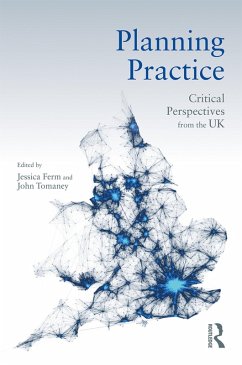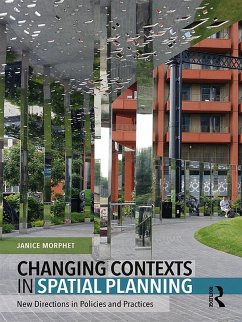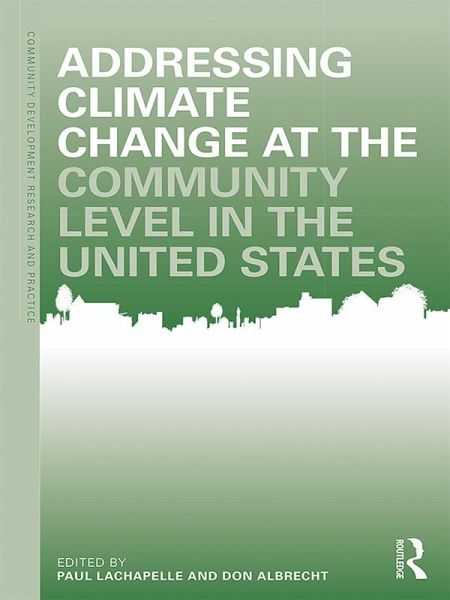
Addressing Climate Change at the Community Level in the United States (eBook, ePUB)
Versandkostenfrei!
Sofort per Download lieferbar
51,95 €
inkl. MwSt.
Weitere Ausgaben:

PAYBACK Punkte
26 °P sammeln!
The concept of community, in all its diverse definitions and manifestations, provides a unique approach to learn more about how groups of individuals and organizations are addressing the challenges posed by climate change. This new volume highlights specific cases of communities developing innovative approaches to climate mitigation and adaptation around the United States. Defining community more comprehensively than just spatial geography to include also communities of interest, identity and practice, this book highlights how individuals and organizations are addressing the challenges posed b...
The concept of community, in all its diverse definitions and manifestations, provides a unique approach to learn more about how groups of individuals and organizations are addressing the challenges posed by climate change. This new volume highlights specific cases of communities developing innovative approaches to climate mitigation and adaptation around the United States. Defining community more comprehensively than just spatial geography to include also communities of interest, identity and practice, this book highlights how individuals and organizations are addressing the challenges posed by climate change through more resilient social processes, government policies and sustainable practices.
Through close examinations of community efforts across the United States, including agricultural stakeholder engagement and permaculture projects, coastal communities and prolonged drought areas, and university extension and local governments, this book shows the influence of building individual and institutional capacity toward addressing climate change issues at the community level. It will be useful to community development students, scholars and practitioners learning to respond to unexpected shocks and address chronic stress associated with climate change and its impacts.
Through close examinations of community efforts across the United States, including agricultural stakeholder engagement and permaculture projects, coastal communities and prolonged drought areas, and university extension and local governments, this book shows the influence of building individual and institutional capacity toward addressing climate change issues at the community level. It will be useful to community development students, scholars and practitioners learning to respond to unexpected shocks and address chronic stress associated with climate change and its impacts.
Dieser Download kann aus rechtlichen Gründen nur mit Rechnungsadresse in A, B, BG, CY, CZ, D, DK, EW, E, FIN, F, GR, HR, H, IRL, I, LT, L, LR, M, NL, PL, P, R, S, SLO, SK ausgeliefert werden.





